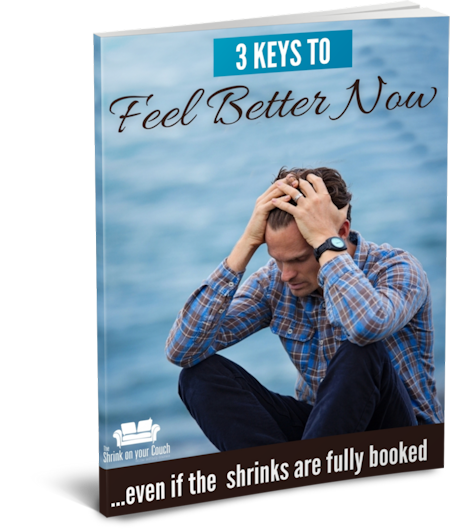The latest research indicates that 80% of people who seek help for life challenges (emotional, psychological, relationship etc.) are better off, as a result, than those who don’t. It’s a bit of a no-brainer, really. But it’s definitely reassuring to know that there is always a way out of a problem. There’s always a different way to look at a challenge. And there’s always a benefit to pausing, reflecting, scoping the issue, looking at options, and then implementing one – maybe even any one - with hope and conviction.
Seeking help is an act of faith, in and of itself. Even typing your presenting problem into a google search bar is an action that carries a sense of optimism. “If there’s a solution out there, I will find it”. This act, long before a course is registered for or a counselling session is booked, starts to set an intention that remedy will be found. And setting your intention is an overwhelmingly powerful tool and skill, in the realm of effective living. It sends a message to yourself and the universe that you expect to overcome. You might not know how, but you know that you will.
Seeking help is an act of curiosity and wonder. It’s driven by the belief that there are ideas “out there” beyond the current known, and that those ideas could prove immensely helpful. I had a professor at university who argued that the main value of education is to show how much one doesn’t know. Seeking help connects us with such a principle, and, again in a spirit of openness and faith, embraces the notion that some current unknown could hold the key to your emancipation from whatever it is that ails you.
Seeking help is also an act of humility. Humility, in this instance, means to be teachable. You may know a lot about a great deal of things, but you may be too consumed by your problem to be objective about it. I’m often struck by how successful many of my most devoted clients are. By almost any standards, they’re rungs above me on the ladder of life. But they are humble, and believe in outsourcing components of their experience that they find unmanageable or challenging, to professionals who have the tools and skills they need to overcome.
They’re also humble enough to actually embrace advice and intervention that seems banal, at face value. They’re often realistic enough about their situations to accept that they’ve missed some fundamental, along the way, and are open to suggestions. I sometimes cringe, when seated before a corporate executive or a prosperous entrepreneur, and suggest that the answer to their problem may be… (wait for it)… meditation, or… (even “softer”...) …journaling. Or that their marital discord may be appeased through… talking to their partner. But, these humble help-seekers are open to the idea that there is magic in the banal, richness in simplicity, and success in being teachable and applying what is suggested.
The great Ann Wilson (“The Wealth Chef”) cautions that we should be very mindful of the information we discard because “we already know”. She teaches that, often, the glibness of our dismissal can be a huge clue that such knowledge isn’t truly attained and integrated at all. We truly know something when we can demonstrate its effectiveness in our lives, or describe in detail why it has not worked for us.
And so, in conclusion, I would challenge you to think creatively about the problems that you currently have in your life. I have no doubt that you are doing the best that you can. But, it’s not unlikely that you nonetheless need to do better. And “better” would be achieved by joining the ranks of the humble, flexible, curious, hopeful help-seekers, who believe that they are only one learning or epiphany away from a new personal best!

